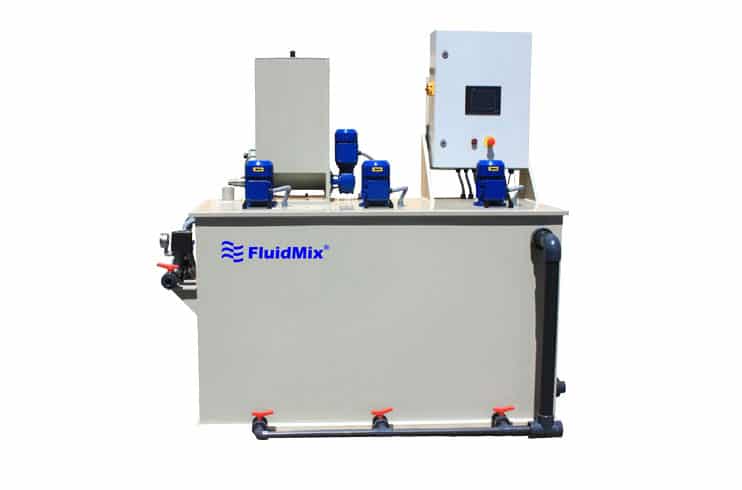One of the most important steps in conventional wastewater treatment processes is the disposal of suspended solids and colloidal particles which remain stable in the water. This is achieved in the primary, or physicochemical, treatment of the treatment plants.

The second step of the physicochemical treatment, the flocculation, aims to unify the formed flocs in large particles to settle faster. For this, a flocculent agent is introduced and the water to treat is submitted to a very slow agitation making sure a good mixture of the reagents while the formed flocs don’t break. The most commonly used are the polyelectrolytes.
Fluidmix offers automatic polymer preparation units. Our polyelectrolyte unit, Autofloc, is a compact and modular tank that allows the automatic and continuous preparation of a homogeneous solution starting from dry or liquid polyelectrolyte, guaranteeing its constant concentration in different percentages.
The Autofloc is composed by a tank of three compartments: dissolving, maturation and dosage (optional). These compartments are interconnected so that it is imposed a preferential circuit to the polymer avoiding the direct way from the dissolving chamber to dosage chamber and ensuring a production of good quality polymer. The preparation of polymer is started automatically by the drive of a sensor of level installed in the last compartment of the tank.
The employment of polymers and flocculants optimize the processes of separation between the solid-liquid phases in applications as:
- Treatment of drinking water and water for industrial processes.
- Purification of waste water, specifically in physicochemical treatments.
- Treatment of sludge, to improve the performance of centrifuges and filter press.
- Industrial Processes in paper mills, chemical industry, petrochemical, treatment of minerals, canning, etc.
Data Sheet
Download the Polymer and Polyelectrolyte Preparing Unit Datasheet






